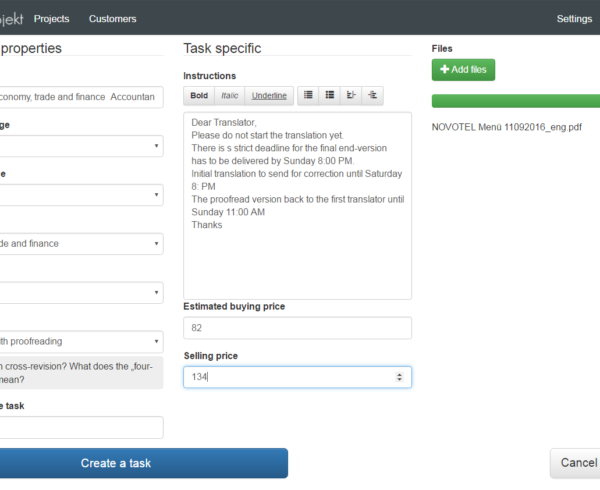A very enthusiastic reddit user created these amazing word maps, businessinsider.com reports. Did you know anything about the origins of the words church, apple, bear, orange, rose, pineapple, and so on? The etymology of these words might surprise you – as well as the similarities and differences of these words in the european languages.
Let’s start it with church. It seems to be coming from the ancient Greece, and you can see on the map below, how much it changed. The etimology of hungarian templom is kind of an easter egg: this word came from the latin templum.
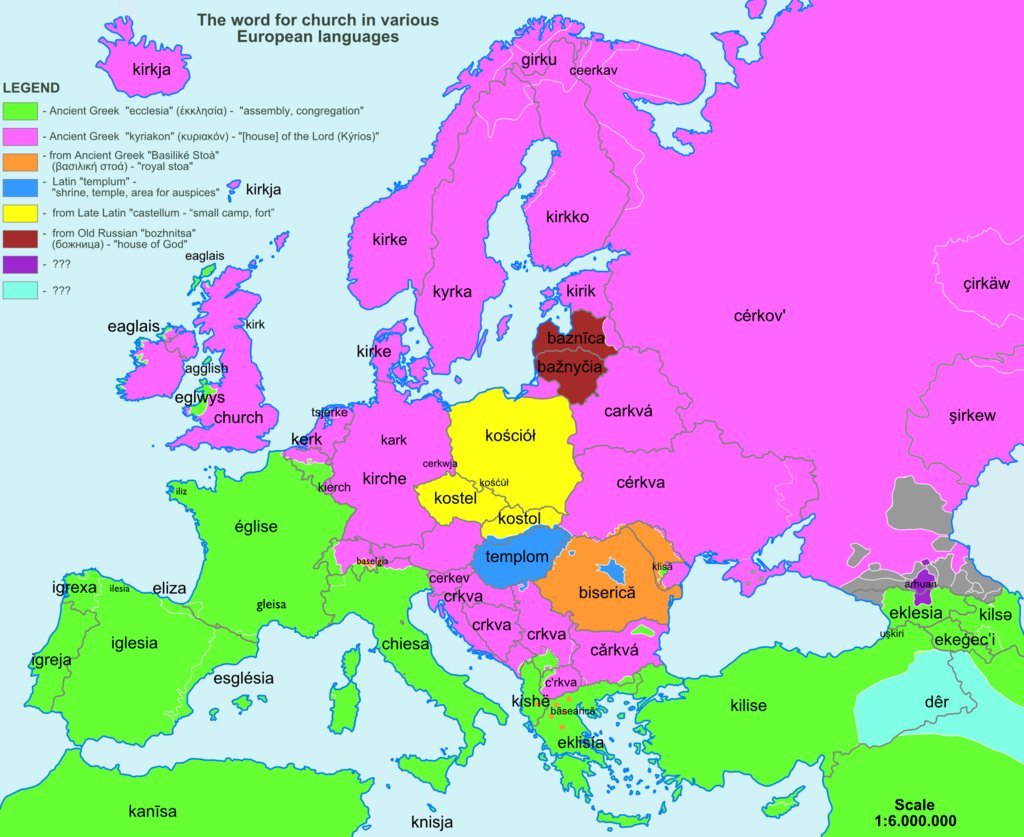
The word bear probably comes from Russia, the land of the biggest bear-population of Europe, but there are some regions where it most probably have a whole different source. The original slavic word probably contained two elements: eat+honey.
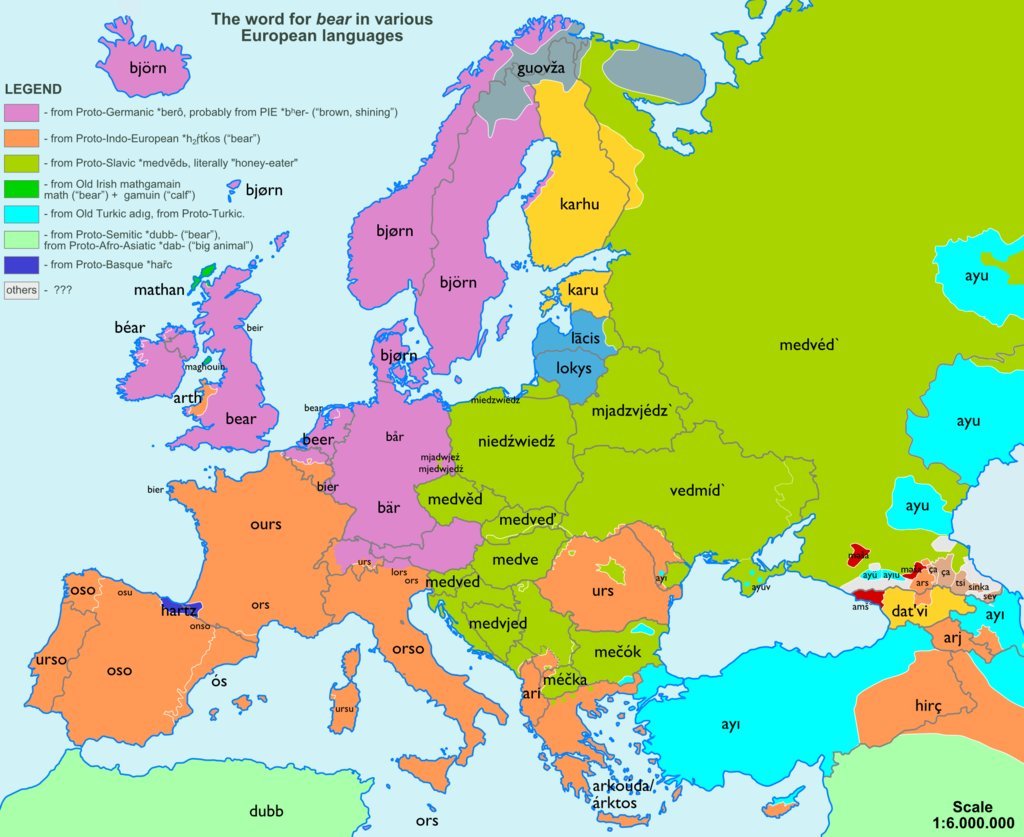
The word beer also appears to show a remarkable variability: in the slavic languages it has some form of pivo, in western Europe and on the south-eastern region it is mostly beer, on the East it is a (deep/back) vowel and an l, on the Iberian Peninsula it is cerveza, and curiously, in the middle of Europe, in Hungary it is sör. The etymology of this hungarian word is unknown, but it is probably an old one: according to the most recent etymological studies, it must have been part of this language in a similar form for more than 1000 years!
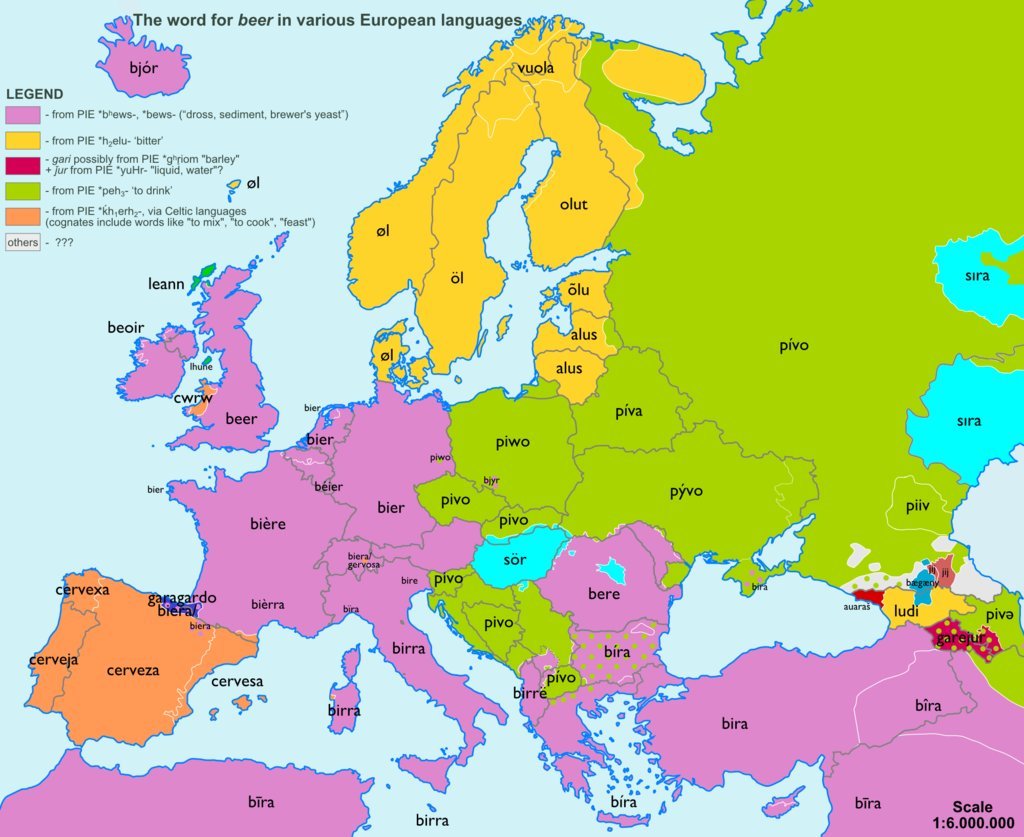
A very othen used word to describe a very popular fruit, apple, shows an incredible variability accross Europe. In the areas marked with blue, alma probably came from an old turkish language more than 1000 years ago.
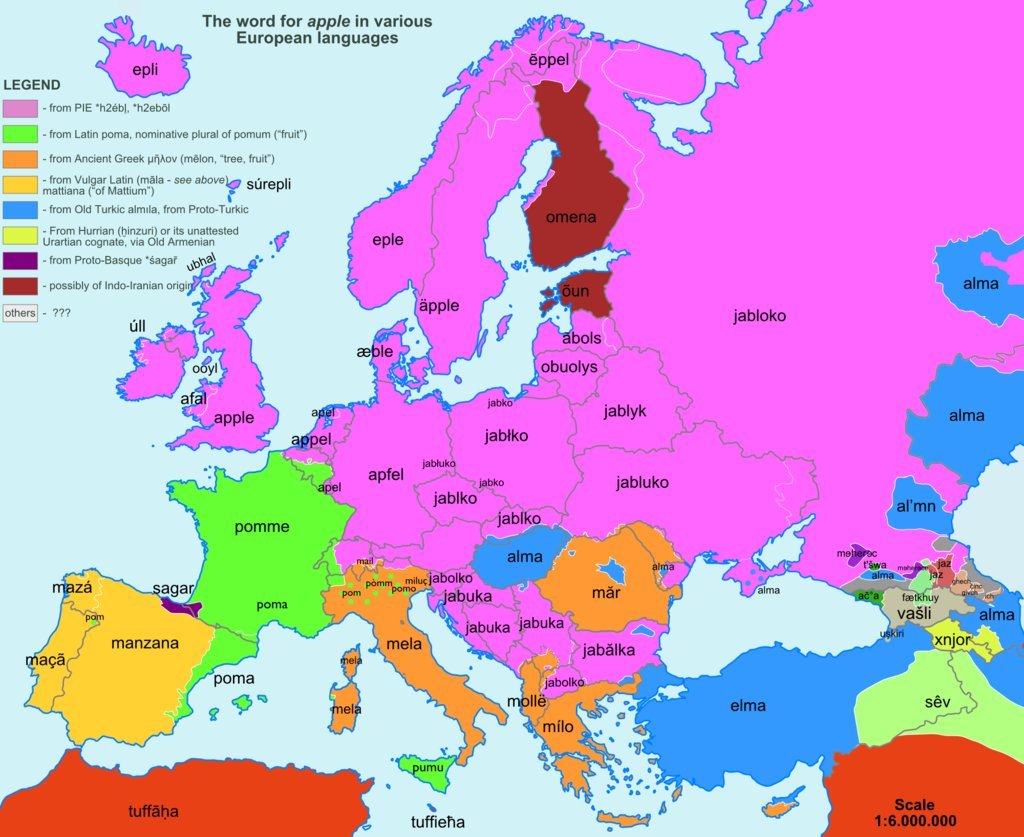
The “most popular” flower (rose) and an exotic fruit (pineapple) is almost unitary in the whole continent, as the following two maps show. Regarding ananas (pineapple), the fruit itself came from a whole different area of the world, therefore at the time it has been imported to Europe, it was unknown to all the european countries – and to describe the new thing, its original name has been imported, too. It was the word naná used by the guarani indians, living in Brazil, and the fruit – with its name – came to Europe through portugese and spanish people.
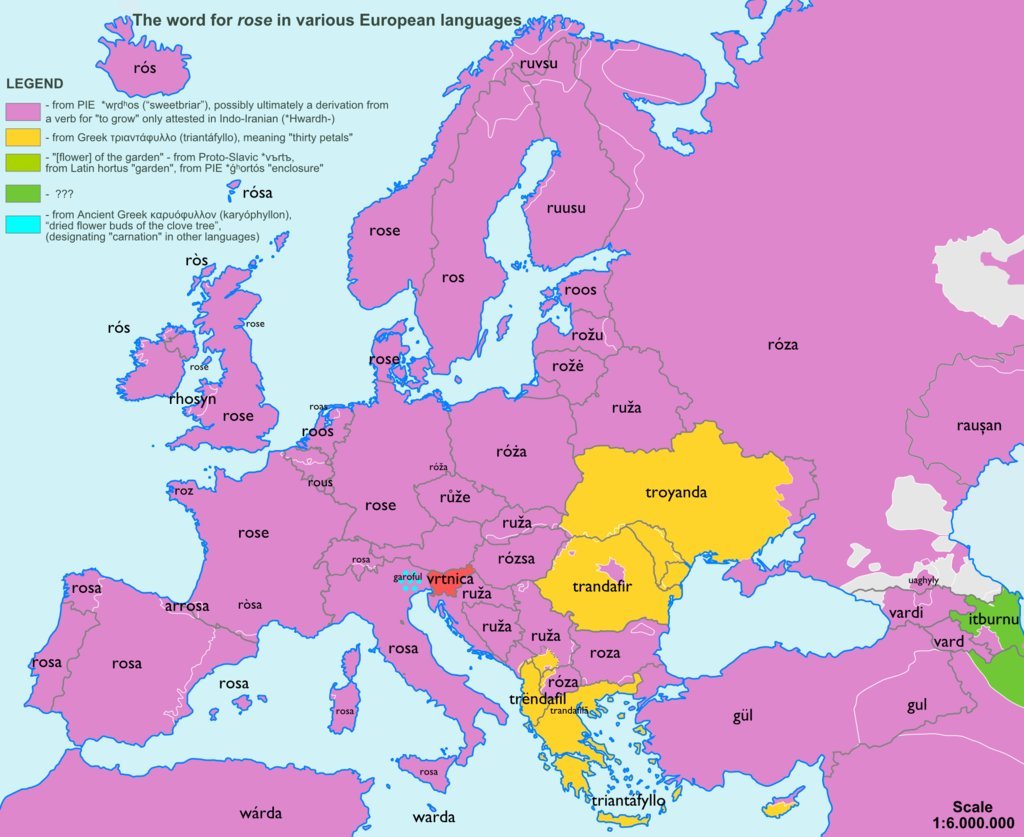
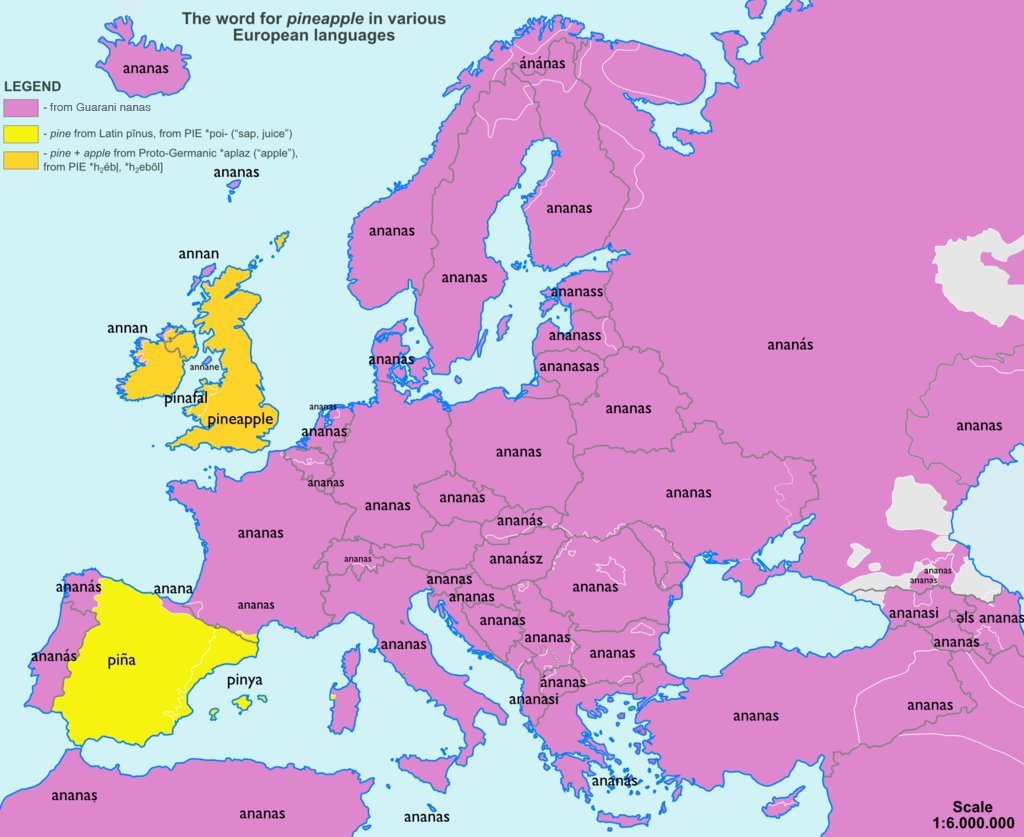
Another fruit that counted as an exotic one that time, orange, originally: narangha, came from the arabian region conveyed by persian and, partially turkish folks to Italy and Spain; then infiltrated to the whole continent. As in most of the cases, the original word changed a lot on the way to the north, and in the eastern region (marked purple) it has a different origin:
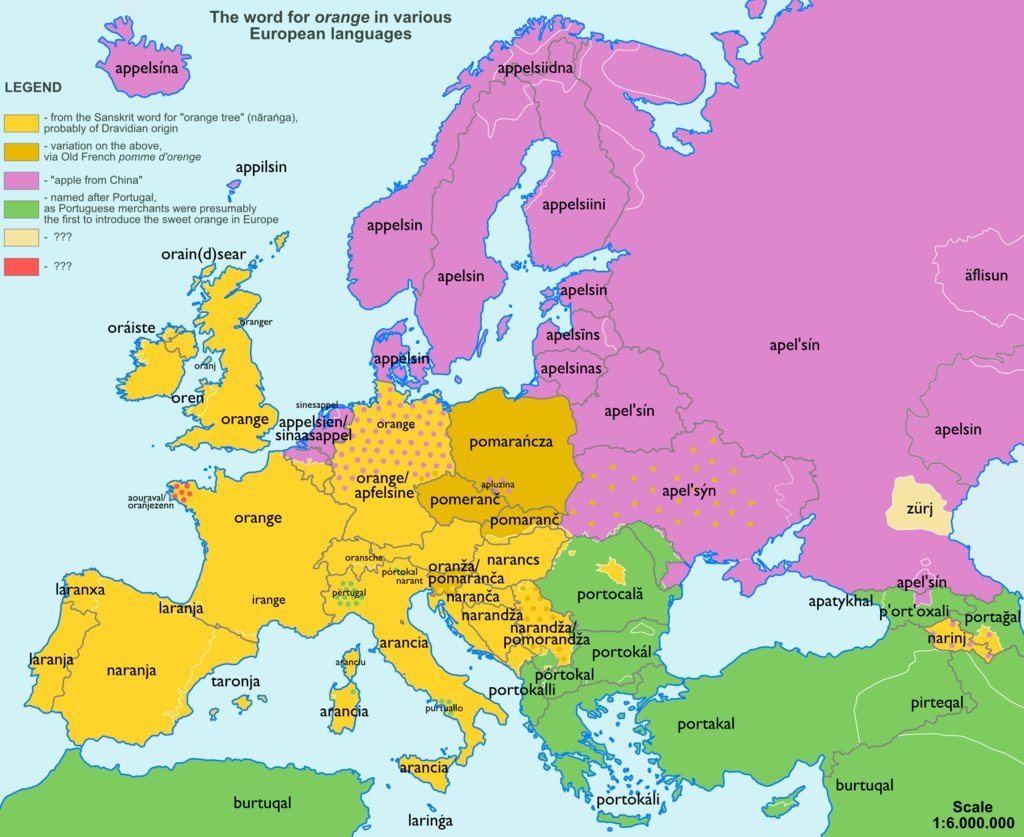
The world tea seems to divide Europe to two parts. To the yellow marked ares it originally came from malay (!) language to Europe, and spreaded from the dutch language. The original word, however, comes from China (surprise!). In the areas marked with green it probably came from cantonese via persian language.
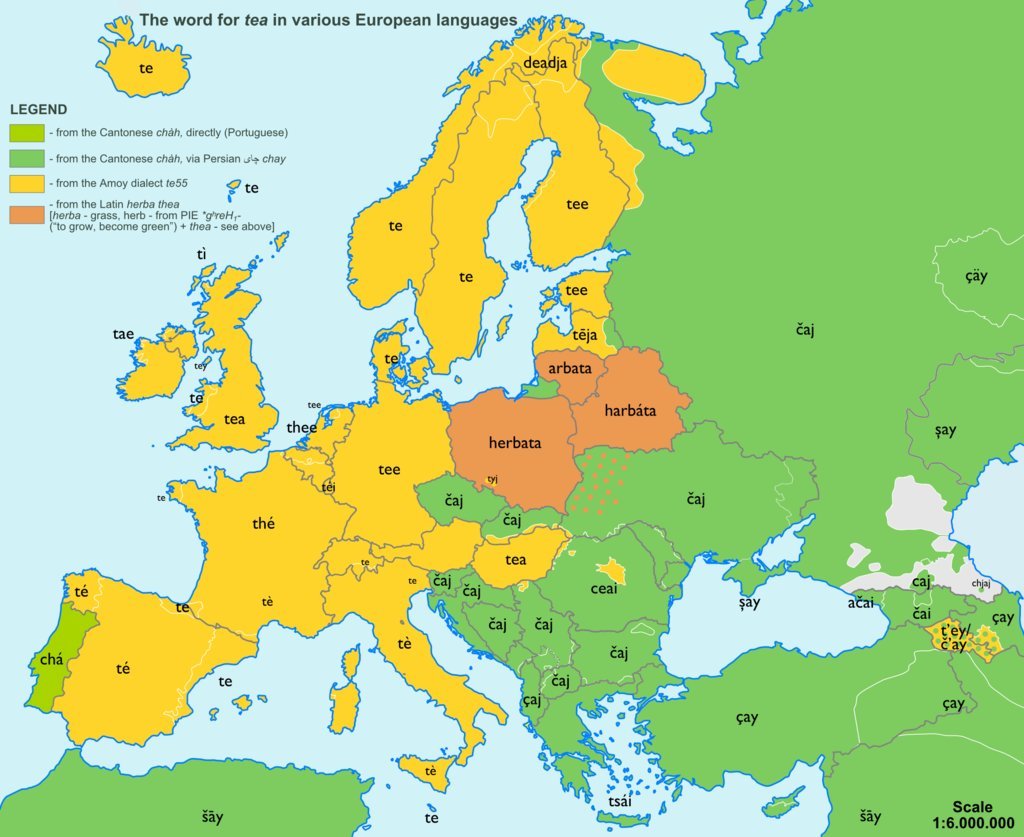
On the map of cucumber, most of Europe is purple: the slavic word came from the medieval Greek ánguri, which probably had a secondary meaning: immature. It is probably because greek people used to eat raw cucumber. As you can also see on the map, the yellow areas borrowed this word from a latin or a pre-Italic mediterranean language, but in some regions they have whole different words for it: words that came from Persia.
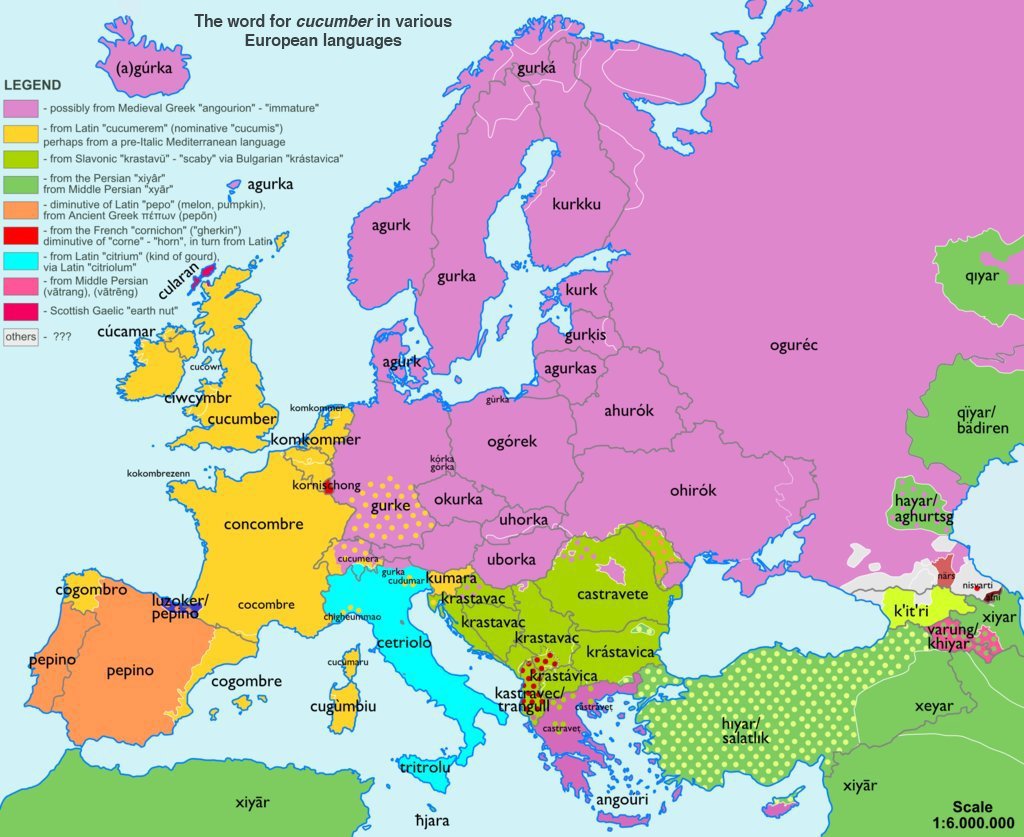
Did you find this post interesting? Check out our previous ones!
3




